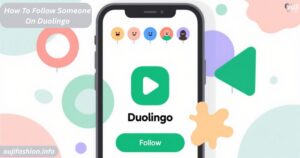Does Duolingo threaten you? That question pops up a lot online. The app is known for fun lessons—but also for its intense reminders. The Duolingo threatening notifications often feel more like warnings than friendly nudges. People laugh about it, turning it into a joke. That’s how the Duolingo meme threat started. Duo, the green owl, became a symbol of guilt and pressure. Skipping a lesson? Be ready. Does Duolingo threaten you then? Many say yes—at least in a funny way.
Some even wonder if the Duolingo threats are real. Of course, the owl won’t knock on your door. But the pushy messages feel serious. That’s why some users call them Duolingo notification threats. Still, others find it all fun and motivating. The Duolingo threat has become a viral part of internet culture. So, does Duolingo threaten you, or is it just clever engagement?
The Reality Behind Duolingo’s Notification System
At first glance, Duolingo’s notifications seem playful—just a friendly nudge from a cartoon owl. But behind the scenes, it’s a carefully designed engagement system rooted in behavioral science and educational gamification. The Duolingo app tracks your usage patterns, then sends timely language practice reminders to keep you on track. It’s more than just a reminder—it’s a strategy. By blending fun with accountability, Duolingo turns passive users into active learners.
Push Notification Strategies and User Impact
Duolingo’s push notification strategy isn’t just random pop-ups—it’s a data-driven engagement plan. The app sends messages based on your learning streak, time of day, and personal habits. If you miss a session, you might get a cheeky reminder like, The goal? To keep you engaged, motivated, and coming back for more. And it works. These digital learning tools have helped millions stay consistent with independent learning methods, proving how clever reminders can shape habits.
Psychological Effects of Reminder Messages
There’s more to those messages than meets the eye. Those passive-aggressive alerts from the Evil Duolingo Owl walk a fine line between humorous and manipulative. Phrases like “You made Duo sad” might seem funny, but they subtly pressure users into staying active. This isn’t just clever marketing—it’s behavioral design. These messages appeal to your inner sense of responsibility, leveraging learning motivation and reinforcing language fluency goals in a lighthearted yet persistent way.
User Response to Passive-Aggressive Alerts
Reactions to Duolingo’s quirky tone are mixed—but undeniably viral. Some users adore the cheeky guilt-trips and share them as Duolingo memes across TikTok, Twitter, and Tumblr memes. Others find the reminders intrusive or overly pushy. fueling user growth. It’s a masterclass in meme marketing, where the line between annoyance and entertainment becomes a brilliant way to boost visibility and keep people talking about language learning.
Read more: https://oujifashion.info/duolingo-crown-levels-google-vignette/
Does Duolingo Threaten You: Analyzing the Viral Owl Memes

If you’ve ever used the Duolingo app, chances are you’ve gotten a push notification that felt oddly intense. Something like, “It would be a shame if you lost your 14-day streak…” or “Duo is watching…” might pop up on your phone. While it’s clearly meant to be funny, these messages have taken on a life of their own online.
The Evil Duolingo Owl—a dramatic version of the friendly green bird—has become a meme legend. Users have turned these notifications into viral jokes, showing Duo sneaking into windows or watching from the shadows when someone forgets their Spanish lesson.
| Year | Total Registered Users |
| 2015 | 12 million users |
| 2016 | 20 million users |
| 2017 | 25 million users |
| 2018 | 35 million users |
| 2019 | 45 million users |
| 2021 | 60 million users |
| 2023 | 74 million users |
These memes exploded on platforms like TikTok, Tumblr, and Twitter, where people post screenshots or funny videos featuring the Duolingo owl acting like a jealous ex or a silent stalker. It’s a mix of humor, exaggeration, and a pinch of truth. That’s what makes them so shareable. While no one actually believes the owl will show up at their door, the passive-aggressive alerts do reflect how persistent Duolingo’s reminders can be. By turning user frustration into viral content, the app has mastered meme marketing and kept itself trending—all without spending much on traditional ads.
Data Privacy and Security Risks on Duolingo

While Duolingo is known for fun language lessons and memes, its handling of user data has raised some concerns. Like many apps, it collects a lot of personal information, which makes users wonder how safe that data really is. With online learning platforms growing fast, protecting user security and privacy is more important than ever.
Personal Information Collection Practices
Duolingo gathers details like your name, email, device info, and even how you use the app. It uses this data to personalize lessons and improve the user experience. However, not everyone is aware of just how much information is being collected in the background, especially when signing up quickly through Google or Facebook.
Third-Party Data Sharing Concerns
A big concern for users is whether Duolingo shares their data with other companies. Like many free apps, Duolingo may allow third-party services to access some user data for things like ad targeting or analytics. This makes some users uneasy, especially when they’re not fully informed about who gets access to what.
Recent Security Incidents and Breaches
In recent years, Duolingo has faced questions about data leaks and account security. Although there hasn’t been a major data breach, reports have shown that some user data was exposed online. This has pushed the company to improve its privacy measures and encourage things like two-factor authentication (2FA) for better protection.
The Truth About Duolingo’s Learning Effectiveness

Duolingo makes learning a new language feel less like school and more like a game. With short lessons, fun challenges, and streak goals, it keeps users motivated to practice every day. This gamified learning style helps build strong habits, especially for beginners who want to learn vocabulary and basic grammar. For many people, it’s a helpful starting point that fits easily into a busy schedule.
However, while Duolingo is great for getting started, it might not be enough to reach full language fluency on its own. The app focuses on reading and writing, but it doesn’t always offer deep language immersion or real conversation practice. That’s why many users combine Duolingo with other independent learning methods like watching shows in the target language, speaking with native speakers, or using more advanced tools. So, while it’s not a one-stop solution, Duolingo can still be a powerful part of a smart learning routine.
FAQ’s
What does Duolingo threaten you actually mean?
Does Duolingo threaten you is a phrase people use jokingly about Duo’s intense reminders. It’s based on the app’s funny, pushy notifications.
Why do people ask does Duolingo threaten you?
People ask does Duolingo threaten you because of viral memes. The Duo owl feels demanding when users miss lessons, making reminders seem aggressive.
Is there truth behind does Duolingo threaten you?
Yes, there’s some truth behind does Duolingo threaten you. Many users feel pressure from the app’s notifications, especially after skipping a few days.
Does Duolingo threaten you in real life?
No, Duolingo does not threaten you in real life. The warnings are meant to be funny and playful, not serious or dangerous.
Should I worry if I feel does Duolingo threaten you?
You shouldn’t worry if you feel does Duolingo threaten you. It’s all part of the app’s meme culture and fun engagement strategy.
Conclusion
Does Duolingo threaten you? Many people online joke about this. The Duolingo meme threat is everywhere. Duo the owl sends strong reminders. Some call them Duolingo threatening notifications. They can feel intense, especially if you skip a lesson. But it’s all meant to be fun.
Still, people ask, are Duolingo threats real? The answer is no. The app uses humor and Duolingo notification threats to keep users coming back. It works for some, but not all. The Duolingo threat is more of a joke than a real warning. Duo isn’t scary—just serious about language learning. So, when someone says Does Duolingo threaten you, it’s mostly about memes, not real danger. Just remember to take your lessons… or Duo might show up in another funny post.








